Dr. Susan Love Research Foundation’s biennial International Symposium on the Breast was established to gather world-class researchers, clinicians, and advocates in an intimate think-tank environment to stimulate ideation, collaboration, and ultimately, breakthroughs that will end breast cancer.
Recent advances in technology have created opportunities for researchers to explore new theories and directions, such as the microbiome of the breast and the relationship between the anatomy of the breast and cancer risk. With its unique approach to multidisciplinary collaboration, the Symposium is a unique opportunity for innovative and dedicated individuals to work together on research projects that explore the cause and prevention of breast cancer.
2015 Pilot Grant Winners:
At every Symposium, multidisciplinary teams are formed to develop and present proposals that further research into the cause and prevention of breast cancer. An expert panel evaluates the proposals and grants are announced at the Award Dinner on the final evening of the three-day program.
In 2015, Susan G. Komen and Atossa Genetics partnered with Dr. Susan Love Research Foundation to fund $50,000 in pilot grants and a single $20,000 award, respectively, to research collaborations formed during the Symposium.
The pilot grants were awarded to research projects that will explore using next generation technology to investigate the human breast and how it develops cancer.
Project: Immune Profiling of Benign Breast Disease
Dr. Sabina Adhikary is a research associate at the Laboratory of Translational Immunology at the John Wayne Cancer Institute, which explores the innate and adaptive immunity in breast cancer. Dr. Amy Degnim leads a team that uses the Mayo Clinic Benign Breast Cohort, which includes about 15,000 women to study whether premalignant changes in breast tissue can be used to predict an individual woman’s breast cancer risk. This consortium will explore whether immune profiling of lymphocytes in women with benign breast disease can predict who will go on to develop breast cancer. This research could lead to the identification of new predictive markers for breast cancer risk and opportunities for prevention.
Consortium:
- Sabina Adhikary, PhD, John Wayne Cancer Institute
- Amy Degnim, MD, Mayo Clinic
- Peter Sieling, PhD, John Wayne Cancer Institute
- Michelle Rakoff and Lissa Levin, Advocates
Award Amount: $16,000
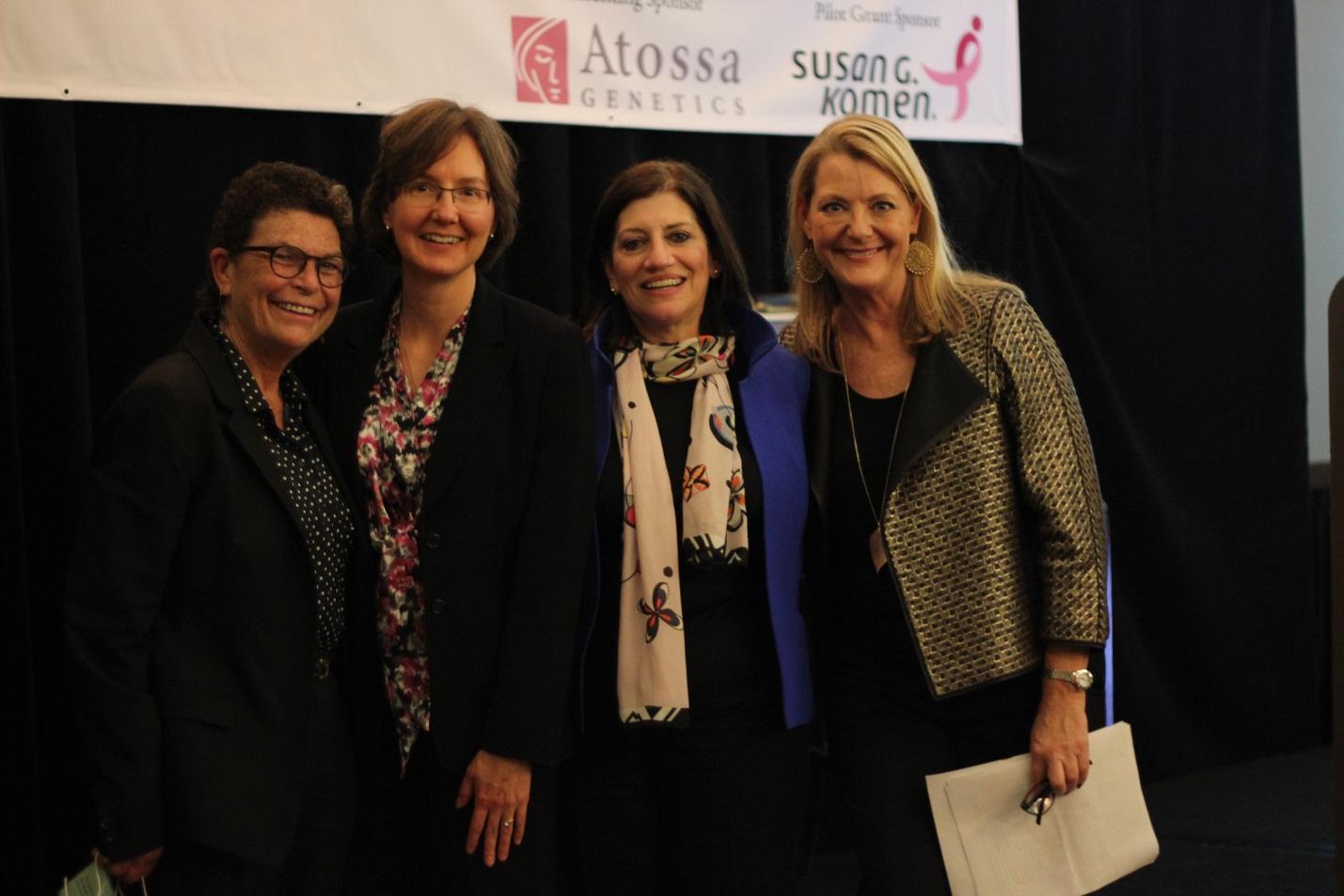
Dr. Susan Love, Dr. Amy Degnim, Dr. Judy Salerno, Komen CEO, and Meribeth Brand, DSLRF Board Chair during the Saturday night awards ceremony at the 8th International Symposium on the Breast.
Project: Optical Coherence Tomography for Breast
Dr. Sheldon Feldman and Dr. Fatih Balci study intraductal approaches to breast cancer. They are currently investigating the effectiveness of optical coherence tomography (OCT), which is used in cardiology to look at blood vessels from the inside using light instead of sound (as an ultrasound does) to create three-dimensional images. OCT may be able to identify early changes in the breast duct before ductal carcinoma in situ (DCIS) or cancer forms. This consortium will study whether it is feasible to use OCT to distinguish different types of breast cells and tissues and whether OCT can show features of invasive cancers or DCIS that are detected on ultrasound or mammography. This work could identify reproducible ways to image early changes in the ducts and set the stage for prevention studies.
Consortium:
- Sheldon M. Feldman, MD, Columbia University
- Fatih Levent Balci, MD, Acibadem University (AU), Istanbul in affiliation with Columbia University
- Christine P. Fleming, PhD, Columbia University
- Linda Wilkes, Advocate
Award Amount: $17,000
Project: Intraductal Therapy & Prevention of Breast Cancer: De-Jamming JAM-A
Dr. Sara Sukumar studies the safety and effectiveness of intraductal therapy in animal models of breast cancer. Dr. Ann Hopkins has conducted research on a tight junction protein called Junctional Adhesion Molecule-A (JAM-A), which has been found to drive functional behaviors associated with breast cancer progression and directly regulate HER2 protein levels. The overexpression of JAM-A has been shown to be predictive of an aggressive tumor and a poor prognosis. Early preclinical data suggests a drug that targets JAM-A has the potential to be an effective breast cancer treatment. This consortium will analyze overexpression of JAM-A in ductal carcinoma in situ (DCIS); determine if this expression correlates with clinical factors; and investigate whether treatments delivered directly into the breast ducts could target JAMA-A and prevent or reduce DCIS in animal models of breast cancer. This research could lead to prevention of invasive breast cancer through a local means.
Consortium:
- Sara Sukumar, PhD, Johns Hopkins University School of Medicine (JHUSOM)
- Ann Hopkins, PhD, Royal College of Surgeons in Ireland
- David Euhus, MD and Vered Stearns, MD, JHUSOM
- Kim Wright, MS, Advocate
Award Amount: $17,000
Project: TLR5 Agonist-Antitumor Immunity
Peter Sieling is the assistant director of the Laboratory of Translational Immunology at the John Wayne Cancer Institute, where he studies the innate and adaptive immunity of breast tumors. Many breast tumors contain inflammatory cells, particularly CD8 lymphocytes. Patients with these tumor-infiltrating CD8 lymphocytes have been found to have a better outcome. Toll-like receptor 5 (TLR5) helps the immune system recognize specific pathogens. It also activates an innate antimicrobial immune response. Laboratory studies have shown that a TLR5 agonist, flagellin, inhibits the growth of breast cancer cells. Dr. Sara Sukumar’s research has explored the safety and effectiveness of intraductal therapy in animal models of breast cancer. This consortium will study the safety and effectiveness of intraductal flagellin in animal models, with the ultimate goal of conducting a clinical trial of intraductal flagellin in breast cancer patients. This would serve as a way to prevent invasive breast cancer from developing.
Consortium:
- Peter Sieling, PhD, John Wayne Cancer Institute (JWCI)
- Sara Sukumar, PhD, Johns Hopkins University School of Medicine
- Maggie DiNome, MD, JWCI
- Lissa Levin and Michelle Rakoff, Advocates
Award Amount: $20,000
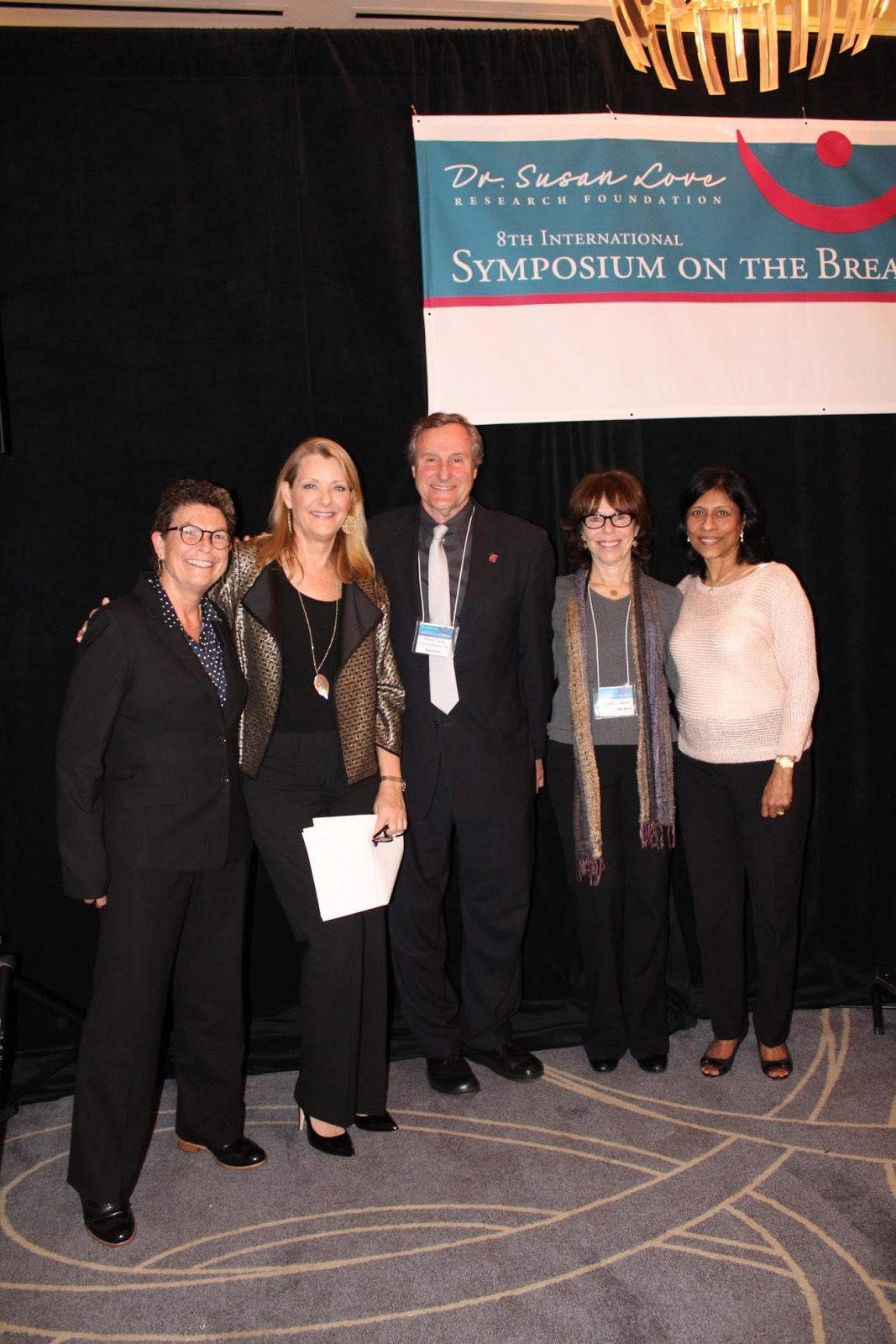
Dr. Susan Love, Meribeth Brand, DSLRF Board Chair, Dr. Steven Quay, Atossa Genetics, Lissa Levine, advocate, and Dr. Sara Sukumar during the Saturday night awards ceremony at the 8th International Symposium on the Breast.
Previous Symposiums:
Dr. Susan Love Research Foundation hosts a biennial International Symposium on the Intraductal Approach to Breast Cancer. First held in 2001, this unique symposium is designed to nurture and accelerate the growing field of intraductal research.
Our Symposium is the only conference focused solely on the intraductal approach. The next International Symposium on the Intraductal Approach to Breast Cancer will be held in 2017.
- February 19 to 21, 2015: The 8th International Symposium on the Intraductal Approach to Breast Cancer: Using Next Generation Science to Understand the Normal Breast and the Development of Breast Cancer in Santa Monica, California. Download Report
- February 23 to 26, 2011: The 7th International Symposium on the Intraductal Approach to Breast Cancer: The Normal Human Breast: Building Our Understanding from Mice to Women in Santa Monica, California. Download Report
- This conference opened with the pre-symposium workshop, "Crossing the Chasm from Animal Models to Women: Everything You Need to Know." Download Report
- February 19 to 21, 2009: The 6th International Symposium on the Intraductal Approach to Breast Cancer in Santa Monica, California. Download Report
- March 1 to 4, 2007: The 5th International Symposium on the Intraductal Approach to Breast Cancer in Santa Monica, California. Download Report
- March 10 to 13, 2005: The 4th International Symposium on the Intraductal Approach to Breast Cancer in Santa Barbara, California. Download Report
- March 26 to 30, 2003: The 3rd International Symposium: The Intraductal Approach to Breast Cancer in Santa Barbara, California. Download Report
- This conference also included a one-day Breast Cancer Course for Researchers: An Interdisciplinary Review of the State of the Science. Download Report
- May 31 to June 3, 2001: The 2nd International Symposium on the Intraductal Approach to Breast Cancer in Santa Barbara, California. Download Report
Photos
Symposium attendees ask questions of Dr. Ann Hopkins after her presentation on ductal barriers in breast epithelium during the 8th International Symposium on the Breast.
Dr. Susan Love speaking to attendees of the 8th International Symposium on the Breast.
Atossa CEO Dr. Steve Quay, Dr. Sheldon Feldman, Dr. Norman Javitt and Dr. Susan Love Research Foundation CEO Heather Cooper Ortner at the 8th International Symposium on the Breast.
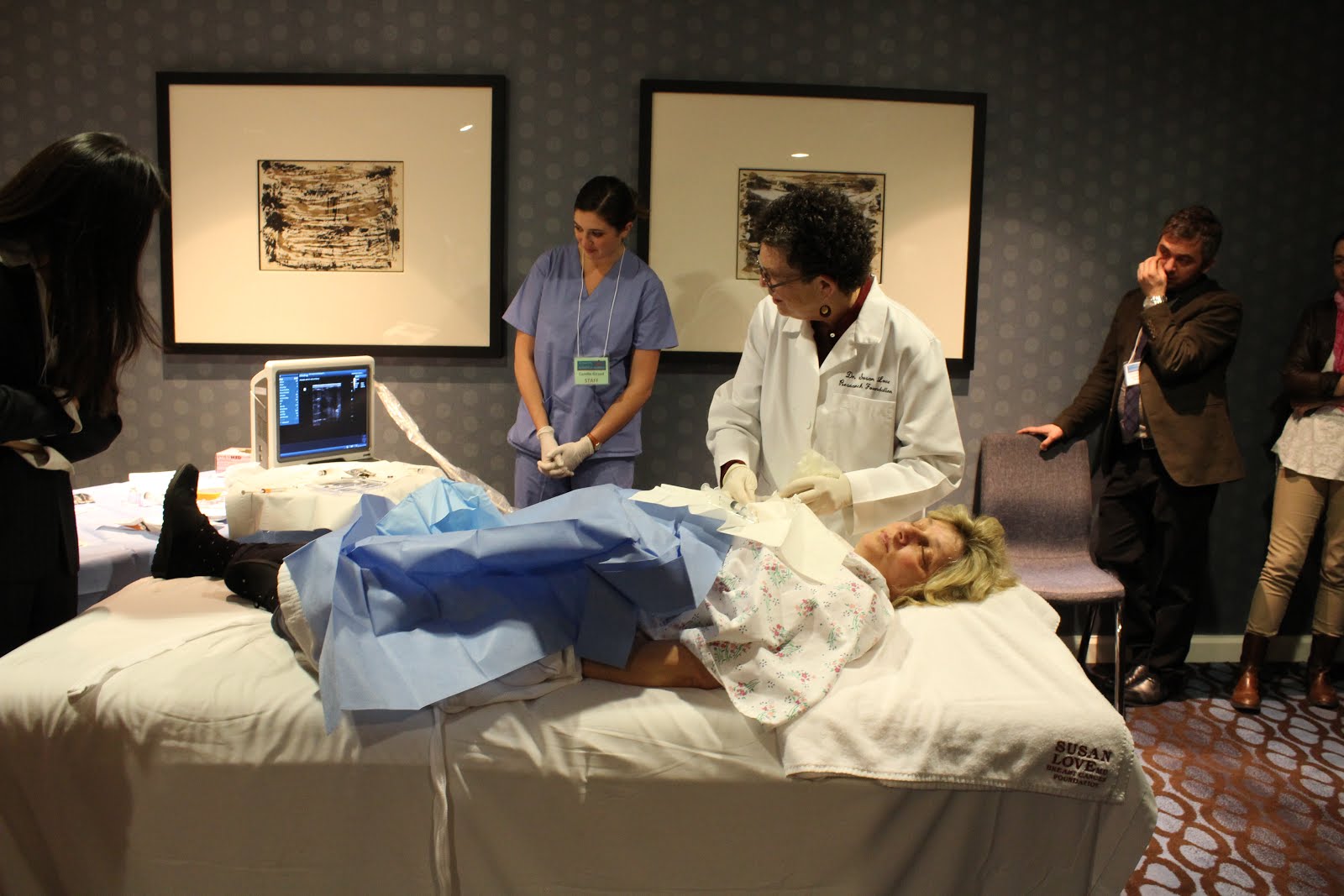
Dr. Susan Love demonstrates nipple aspirate fluid and ductal lavage as a group of researchers, clinicians and advocates look on during the 8th International Symposium on the Breast.
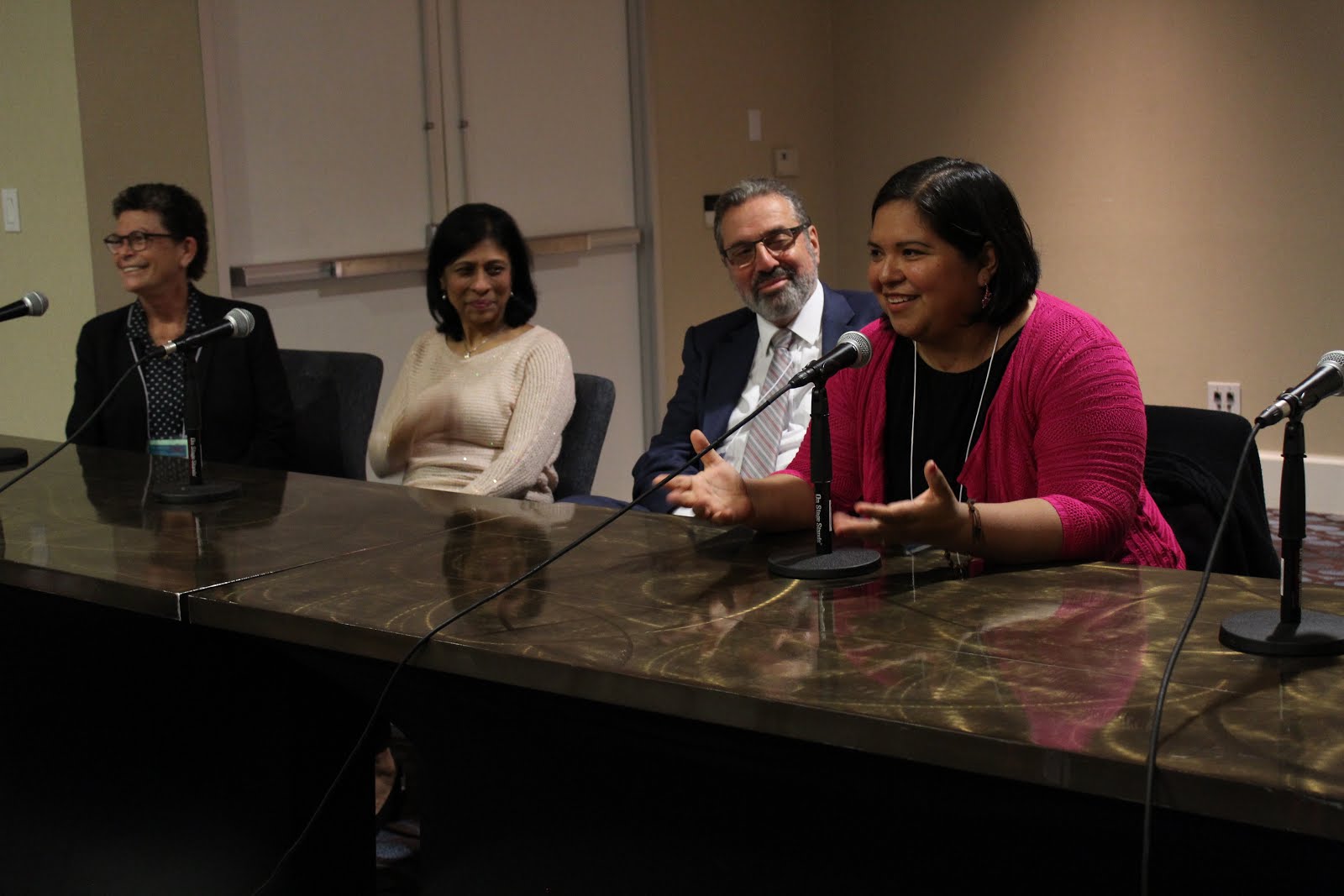
Dr Susan Love, Dr. Saraswati Sukumar, Dr. Sheldon Feldman and advocate Ghecemy Lopez answer questions during Saturday evening’s public presentation at the 8th International Symposium on the Breast.
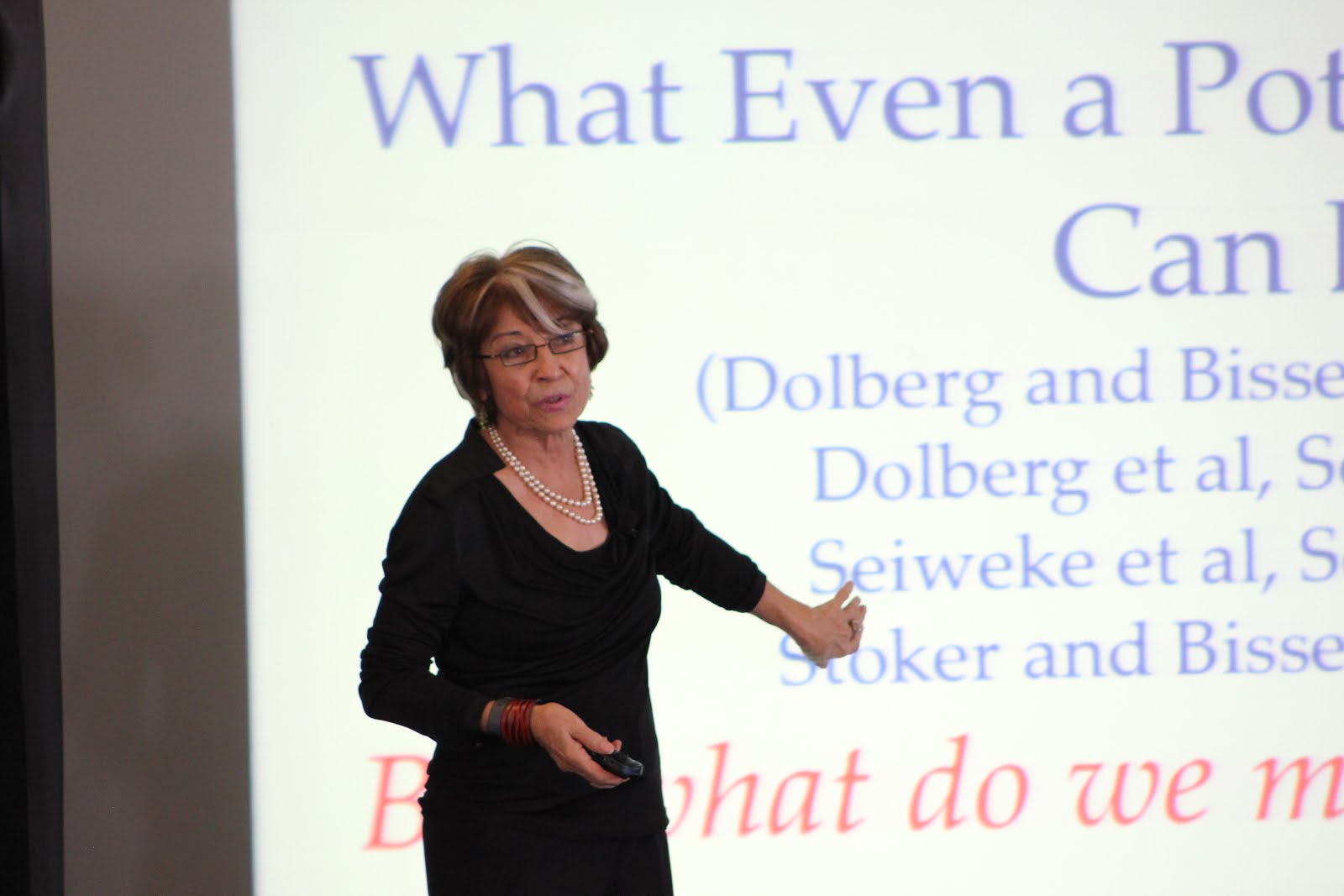
Dr. Mina Bissell during her presentation titled “Why Don’t We Get More Cancer? The Critical Role of Extracellular Matrix and Microenvironment in Metastasis and Dormancy” at the 8th International Symposium on the Breast.
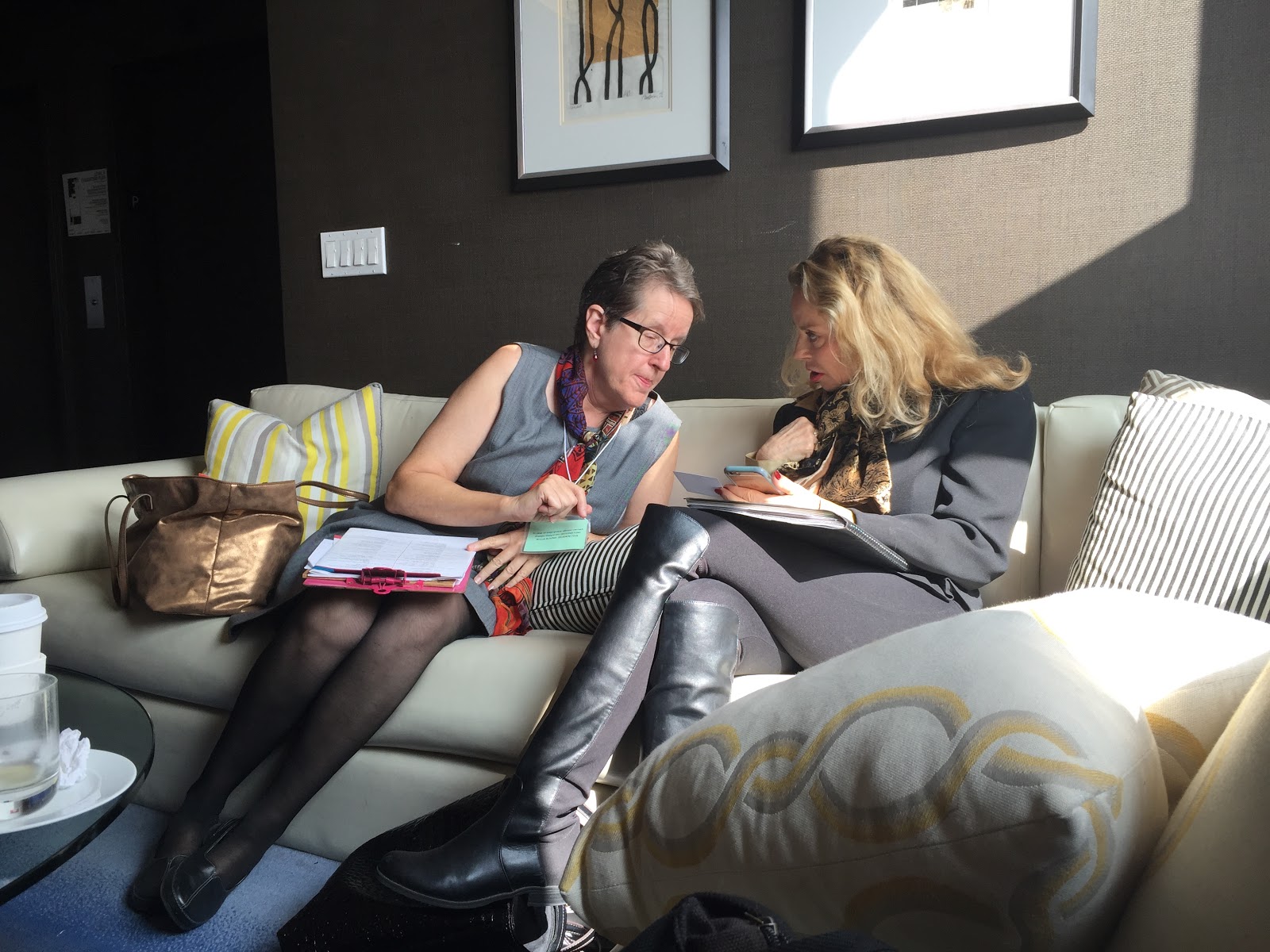
Following the spirit of collaboration and networking encouraged at the 8th International Symposium on the Breast, Army of Women volunteer and Advocate Sue Beem and volunteer April Sellers trade contact information on Thursday afternoon. April also volunteers for a Los Angeles based Girl Scout troop, who donated 10% of its cookie funds to Dr. Susan Love Research Foundation in 2014.
